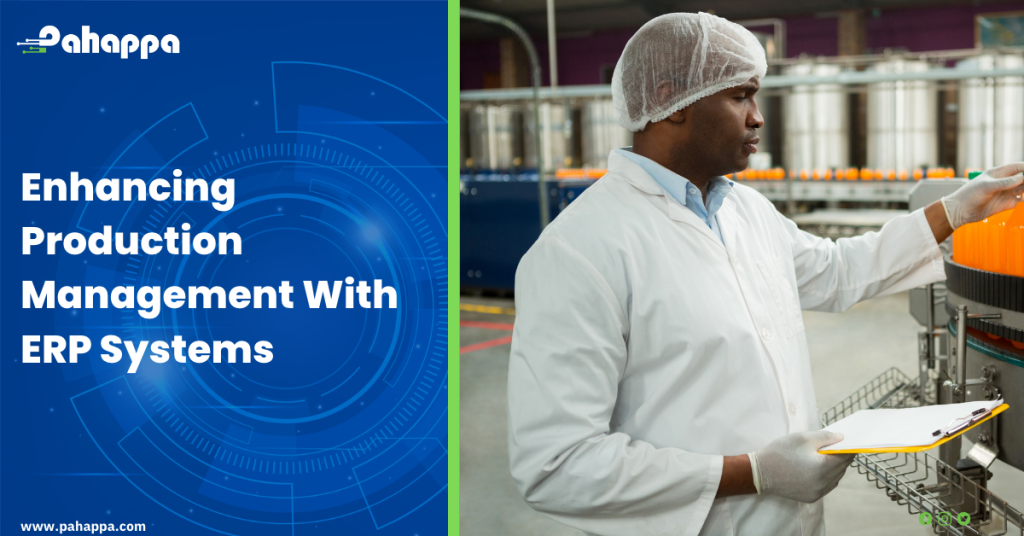Enterprise Resource Planning (ERP) systems can be a valuable tool for enhancing production management in organizations. ERP systems are software solutions that integrate all aspects of a business’s operations, including production management, supply chain management, financial management, human resources, and more.
With production management, managers can control production at the lowest cost, delivering the highest quality of finished goods. Production management is the control of a company’s operations to produce the goods and services needed.
Here are some ways that ERP systems can enhance production management:
- Improved planning and scheduling: ERP systems can provide real-time data on inventory levels, production schedules, and customer orders. A company would be informed about the supplies of raw materials and when to restock them. Information on what supplies they have used and their variances would also be noted making it easy to plan for the stock coming in. This information can be used to optimize production schedules and ensure that materials are available when needed.
- Streamlined processes: By integrating all production-related processes, ERP systems can eliminate duplication of effort, reduce errors, and improve productivity. Since data is given in real-time and is automated, processes like requisition management, stock in and stock out are automatically monitored and streamlined.
- Enhanced communication and collaboration: ERP systems can provide a centralized platform for communication and collaboration among different departments involved in the production process, such as sales, purchasing, inventory control, and production planning. For example, the procurement department would be easily notified whenever raw materials or requirements in the production department need restocking. Because other departments are collaborating, departments like sales would choose to communicate with clients about restocking the products or particular products. Communication between departments and eventually clients could be done via email, or even SMS.
- Better quality control: ERP systems can help track and monitor product quality throughout the production process, from raw materials to finished goods. Under the production module, ERPs can track raw materials, their quantities, variances and stock. This can help ensure that quality standards are met and that defective products are identified and addressed quickly.
- Increased visibility and control: ERP systems provide real-time visibility into production activities, inventory levels, and other key performance indicators. This information can be used to identify bottlenecks, optimize processes, and make data-driven decisions and thereby also increasing efficiency throughout the department in the company. Visibility and control also help to monitor the production levels and whether they are doing well or changes should be made.
ERP systems can provide organizations with the tools they need to enhance production management, improve efficiency, and reduce costs. However, implementing an ERP system requires careful planning, training, and support to ensure that it is used effectively and that it delivers the desired benefits. To discover more about ERP systems and how they can benefit your company, click here.












Thank you for writing such an informative post and interesting article. <a href=”https://unogeeks.com/oracle-fusion-financials-online-training”>Oracle Fusion Financials Online Training</a>